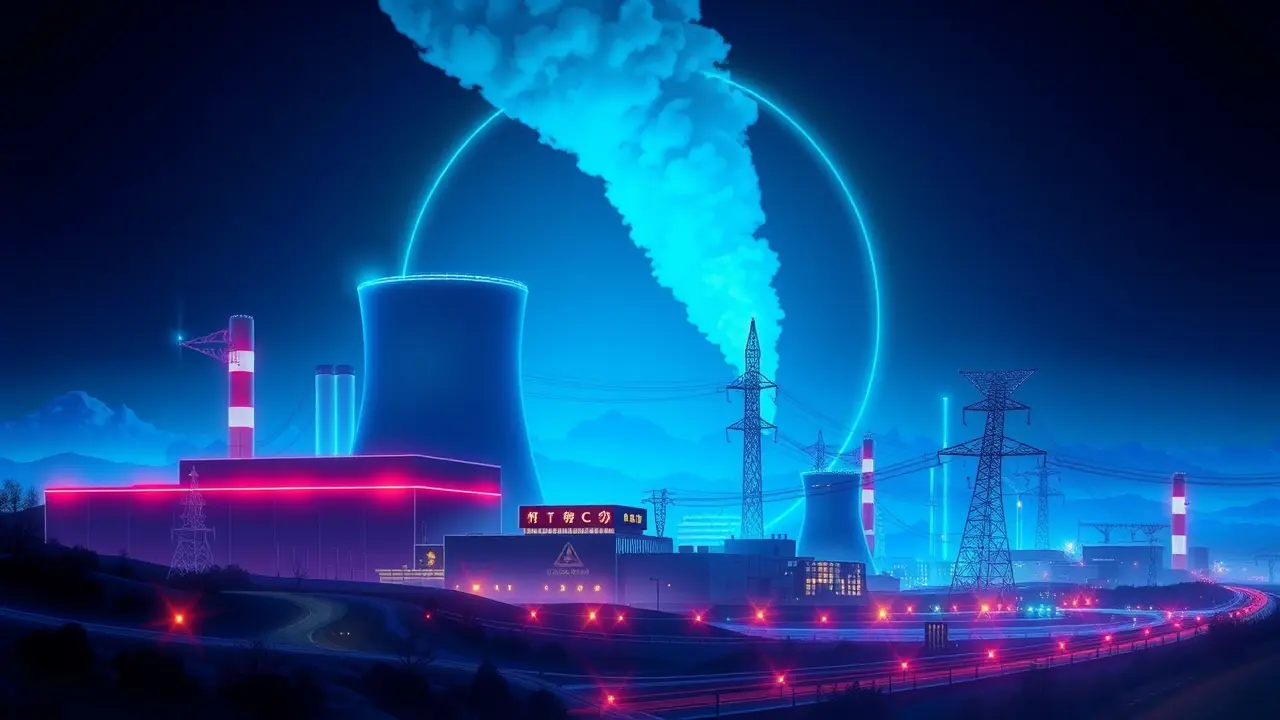Japan's Nuclear Plant Restart Plan Sparks Bribery Accusations
In a strategic maneuver that political risk analysts are characterizing as a high-stakes gamble with profound implications for Japan's energy security and regulatory integrity, Tokyo Electric Power Company (Tepco) is reportedly preparing an unprecedented 100 billion yen (US$654 million) financial support package to secure local approval for restarting the colossal, yet dormant, Kashiwazaki-Kariwa nuclear plant. This move, first detailed by the Nikkei business newspaper, is not merely a corporate initiative; it represents a critical stress test for Japan's post-Fukushima political and economic landscape, where the desperate need for stable, low-carbon energy collides directly with deep-seated public trauma and skepticism.For Tepco, the operator responsible for the 2011 Fukushima Daiichi meltdown, the revival of Kashiwazaki-Kariwa—the world's largest nuclear power station by capacity—is existential. The plant's seven reactors have been offline since the disaster, forcing the utility into a precarious financial position reliant on expensive fossil fuel imports and government bailouts, a dependency that has left it acutely vulnerable to global market shocks and mounting pressure to meet national decarbonization targets.However, the proposed payout, framed by critics as blatant 'bribery', introduces a volatile new variable into an already complex risk matrix. The scenario here is fraught with potential blowback: if local communities perceive this financial incentive as coercive rather than cooperative, it could trigger a wave of public outrage, reinvigorating Japan's potent anti-nuclear movement and leading to protracted legal challenges that would further delay the restart process, potentially for years.Conversely, if the package is accepted, it sets a formidable precedent, establishing a de facto price tag for local consent on critical national infrastructure projects, thereby commodifying public trust and potentially inviting a future where corporate financial power can effectively override nuanced democratic deliberation. Analysts are closely monitoring the political calculus of the central government, which has cautiously endorsed nuclear restarts as part of its 2050 carbon neutrality pledge but must now navigate the optics of a company with a catastrophic safety record attempting to buy its way back into operation.The situation echoes historical precedents where large-scale industrial projects attempted to placate opposition with economic benefits, yet the shadow of Fukushima makes this case uniquely sensitive. Expert commentary suggests that Tepco's desperation is palpable; each day the Kashiwazaki-Kariwa plant remains idle represents a massive stranded asset and a continuing drain on both the company's finances and Japan's strategic energy reserves.The potential consequences extend far beyond Niigata Prefecture. A successful, albeit controversial, restart could embolden other utilities to pursue similar financial arrangements, accelerating Japan's nuclear renaissance but at the cost of eroding procedural legitimacy.A failure, however, could signal a terminal decline for the nation's nuclear fleet, forcing a costly and rapid pivot to renewables and imported LNG, with significant implications for energy prices, geopolitical leverage, and climate goals. The core analytical insight is that this is more than a local dispute; it is a pivotal moment of systemic risk, testing the resilience of Japan's governance structures and the very social license of its nuclear industry in a world increasingly wary of both energy insecurity and corporate overreach.
Latest News
The charts are whispering what the true believers have felt in their bones for weeks—Dogecoin is carving out a bottom.
17 hours ago5 comments
The Institute for Fiscal Studies has thrown a stark warning onto Rachel Reeves's desk, urging the Chancellor to confront a potential £22 billion shortfall in
17 hours ago3 comments
Alright, let's break down this absolute heater of a performance from the Chicago Blackhawks, because if you missed this one, you missed a party.
18 hours ago5 comments
The ice was hot last night in the NHL, folks, serving up a slate of games that felt less like a regular season Tuesday and more like a playoff preview with a
18 hours ago3 comments
The XRP chart is painting a tantalizing picture for those with the stomach to withstand the relentless pressure from crypto's leviathans.
18 hours ago4 comments
It’s in the small shifts, the quiet recalibrations of a Thursday morning, where the most meaningful change often takes root.
18 hours ago4 comments
In a move that sent ripples of quiet confidence through the crypto ecosystem, blockchain intelligence firms tracked a monumental treasury allocation from
18 hours ago4 comments
In a move that would have drawn a nod of approval from historical figures like Churchill, who understood the delicate balance of power within democratic
18 hours ago2 comments
KE
Kenji Tanaka123k1 day ago
on one hand i get why they need the power but on the other this feels like they're just trying to buy their way past the safety concerns after everything that happened smh
0
MA
Maya Tanaka123k1 day ago
this could actually be the start of a real energy turnaround for Japan, turning a point of past trauma into a foundation for a cleaner, more secure future
0
JA
Jamie Larson123k1 day ago
this feels like the plot of a movie where the corporation is obviously the villain tbh, trying to buy their way out of a disaster they caused smh
0
KA
Kai Morrison123k2 days ago
so we're just putting a price on trust now tbh feels like we're trading one kind of energy for another and the cost is something you can't measure
0
MA
Mark Reynolds123k2 days ago
smh feels like they're just trying to buy their way out of this mess tbh idk if money should be the solution here
0
